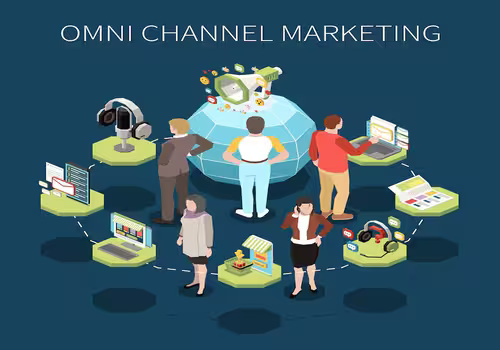Retail Pharmacy
Pharmacies' Function in the Healthcare Ecosystem
Pharmacies are the third most significant delivery route in a healthcare ecosystem, after hospitals and clinics. First and foremost, pharmacies provide the local population with access to medications and medical supplies. Every major pharmaceutical company’s medications are distributed through pharmacies to even the most remote regions of the globe. The most recent innovations are local home delivery and e-commerce.
Additionally, the majority of pharmacies offer the service of visiting physicians who offer initial examinations and assessments as well as additional local suggestions.
Health campaigns might use certified pharmacies as delivery partners. In an emergency, certified pharmacies can also be quite helpful.
In addition, pharmacies generate job possibilities.
It is crucial to run pharmacies with the highest level of professionalism because of their vital function in the healthcare ecosystem. Additionally, private pharmacies ought to be run as businesses.
Difficulties from a management standpoint
Challenges in Operations
Compared to clinics or hospitals, pharmacies are much simpler organizations. Nonetheless, it remains a component of healthcare ecosystems and contributes significantly to the patient journey and value chain. In the pharmacy industry, having robust support functions for operations management is crucial. Below is a discussion of some of the typical operational difficulties encountered in the pharmaceutical industry.
Although the laws governing employment in pharmacies may vary from one country to another, the general idea is the same: only registered professionals who meet the necessary qualifications may work in pharmacies. The world is seeing an increasing scarcity of certified pharmacists. One of the most common explanations is that fewer students are choosing to pursue pharmacy study. Pay is another connected factor. Today, the majority of conventional pharmacies are tiny, neighborhood establishments. These companies find it challenging to pay high wages. The majority of the market is still controlled by small companies, despite the entry of numerous large brands and enterprises, including eCommerce firms.
Another task that requires the highest level of professionalism in the pharmacy industry is inventory management. First of all, medications have expiration dates. Pharmacies need to monitor this factor. Product advancements and modifications also highlight the necessity for updated inventory. The difficulty of modifying inventory in response to seasonal variations that impact the demand for medications and other medical supplies comes next. Preventing overstocking and understocking is already in place.
Challenges in Operations
Every entrepreneur should reflect on why they chose this line of work before making any firm decisions. Any innate strength that gives you a competitive edge is a good thing. The remainder of the business planning process may be drastically changed as a result. For instance, the prospective business has several advantages right once if it has its own commercial location in a well-known area. But in practice, things are more complicated, which makes this task difficult.
For any organization, conducting market research is vital. It also holds true for retail pharmacies. It is not appropriate to regard a cursory knowledge and imprecise evaluations of regional marketplaces and consumer behavior as market insights. The majority of small businesses don’t pursue thorough and carefully chosen market research, which frequently influences their marketing and business planning plans.

The selection of appropriate value propositions is another difficulty. Every market has its own distinct needs and features. This influences the type and details of values provided to each market’s target segments. These value propositions should be adjusted to meet the needs of each market or area.
The difficulties associated with commercial and financial planning are covered in a later paragraph.
It’s critical for already-existing pharmacy firms to aim for growth and expansion. Many firms are trapped in their current state due to increased competition and modernization.
Commercial and Financial Difficulties
Pharmacies must carefully plan their purchases since they must keep a wide variety of inventory based on demand and expiration dates. They must do this without having too much inventory or too little, as the former might lead to a liquidity problem and subsequent sales declines.
Businesses in the pharmaceutical industry have been compelled to reduce their margins due to growing competition from both online and offline players. For small businesses with lower sales, this is challenging.

Pharmacy enterprises now face more challenges due to rising operating costs. The demand for higher salaries and consulting fees, rising utility service rates, and yearly rent increases are all examples of this.
Pharmacies have both financial and time-related challenges as a result of shifting regulatory compliance requirements. This is yet another justification for employing and keeping personnel who are aware of these medico-regulatory nuances.
Pharmacies must occasionally update themselves due to shifting consumer expectations. There is a price associated with these basic system overhauls and modifications. Here, adoption or upgrade of technology is used as an example.
Without effective processes and planning, cash flow management is impossible. Controlling cash input and outflow is crucial for meeting working capital needs, preserving profitability, and funding future expansion and growth initiatives.
Challenges in Technology
Inventory management software is one of the most fundamental technology needs in the pharmacy industry. It facilitates prompt and well-informed decision-making regarding replenishment, returns, and other inventory-related matters. More sophisticated features are available on more sophisticated software platforms. The issue is that most small businesses still use registers and copies to record inventory data. As a result, the reordering procedure is disorganized and unpredictable. For instance, some handwriting on these registers can be unreadable to the employee in charge of placing reorders.

Billing software is another crucial piece of technology utilized in the pharmacy industry. The inventory and billing applications need to be connected and run from the same database. In addition to slowing down the checkout process, using two different software programs that are not properly connected might result in financial losses. Additionally, it may make it more difficult to keep the necessary supply levels.
Analytics is a third technology that has gained popularity. Better demand forecasting, data-driven insights into customer behavior, supplier performance monitoring, process performance analysis, audits, and more can all benefit from it. Once more, most small enterprises either lack the necessary technological tools for analysis or do not make sufficient use of them.
Recent Advancements
The use of digital transformation is one of the most significant trends in the retail pharmacy sector. Pharmacies are currently attempting to use online platforms to broaden the scope of their services. This has made it possible for them to provide services like home delivery, online booking, prescription refills, telepharmacy, and remote consultations.
The conventional functions of pharmacies are evolving. In line with the concept of preventive care, several pharmacies are rebranding as wellness centers. Additionally, pharmacists are increasingly joining up with medical facilities such as hospitals, clinics, and diagnostic and laboratory facilities. Precision medicine is also establishing itself in other nations.

Another new trend is the utilization of blockchain technology. Increasing logistical trackability and product validity are two key goals of this technology.
The pharmacy industry has also established a solid foundation for customer experience. The rationale is no different than that of any other firm. Pharmacies now frequently provide value-added services including drive-thru, home delivery, longer hours, and online booking.
Upcoming Patterns
In the future, pharmacies will do more than simply dispense medications and provide visiting physician consultations. Local healthcare ecosystems will be significantly impacted by pharmacies. Analytics is already widely being used to enhance marketing, operations, personnel, inventory control, and other strategic and business-related sectors. The role of automation will increase. Pharmacies will no longer operate as stand-alone businesses; instead, they will interact more actively with hospitals, insurance providers, and online retailers, among other players in the larger healthcare ecosystem.

Why TRS
Businesses across a wide range of industries have benefited from TRS extensive experience as retail and eCommerce consultants. , which has led to a success rate of more than 94.5%. TRS offers pharmaceutical business consulting services for starting a company, enhancing management, achieving operational excellence, and carrying out development and growth plans. The following is a quick summary of TRS offerings for pharmacy retail businesses.
Market Analysis
TRS provides market research services with the goal of providing a thorough and perceptive view of the market along with useful data and suggestions on a wide variety of aspects. The following is a list of some of these factors in market research for pharmacies:
- Market gaps
- Customers’ needs and expectations
- Potential solutions and value propositions
- Market segments, buyer and consumer behaviour, buyer personas
- Target market location(s), target market size
- Obstructions to market entry and exit
- Opportunities for scale
- Pricing

Development of Business Models
Startups in the pharmaceutical industry must start with compelling value propositions and unique brand positioning due to the heightened competition. To do this, one must transcend the bounds of traditional values and accepted market norms. This highlights outer-layer values such as hyperlocalization, omnichannel services, competitive discounts, membership or loyalty rewards, etc. In order to establish brand uniqueness, it has become commonplace for pharmacies to offer supplemental, value-based services and perks. TRS recognizes the significance of adhering to the core principles in its business model creation services, as well as these emerging trends.

Consulting for Omnichannel
Pharmacy stores can overcome certain obstacles and gain numerous advantages by implementing omnichannel. Customer acquisition is one of the most difficult activities in the pharmacy industry. Providing home delivery and online services boosts the likelihood of acquiring new clients. Additionally, this helps get around any locational restrictions that might have surfaced subsequently. Depending on the demands of the organization, there are several levels of omnichannel adoption. TRS adjusts strategies in accordance with its understanding of the strategic and delicate facets of omnichannel adoption.

Pharmacy Businesses Can Benefit from E-Commerce Consulting
TRS provides a wide range of eCommerce consulting services for pharmacy retail firms, including business setup and scaling solutions. The goal of the service is to provide precise and promptly implementable solutions using a process that has been planned and tested. Market research, business model development, financial and commercial planning, functional strategies, SOPs, finding the best IT solutions, SOP-IT integration, franchising, and auditing are some of the main components of this service.

Practical Techniques
An organization’s various business operations can remain in sync and in line with the global business goals and objectives with the support of functional strategies. Line and staff operations as specialized divisions and coordinated parts of one enterprise are given certainty by having well-planned functional plans. The solutions for additional functions fall under this heading, even though TRS offers solutions for some of the primary line functions separately (such as financial and operations planning). The goal of this service is to swiftly complete the strategic framework for other departments, such as administration, logistics, and human resources.

Analysis of Pharmacy Locations
In physical retail, a company’s growth trajectory is greatly influenced by its location. This also holds true for pharmacies. One crucial prerequisite is that pharmacies must combine their marketing prowess with rent savings. However, beyond a certain point, marketing and promotions are no longer helpful in overcoming a poor site. However, choosing a prominent position does not negate the necessity of advertising and promotions. Additionally, it should be remembered that the choice of place is not an independent one. Value propositions, value chains, supply chains, value chain partners’ services, infrastructure, accessibility, traffic, expected local developments, consumer behavior, etc. all have an impact on it. For this reason, depending on the services being requested, TRS begins location analysis right away. TRS is aware that managing the complexities of locational research alongside the rest of the business planning can be challenging, particularly for new companies.

SOP Framework: Planning for Operations
TRS emphasizes that some of the necessary results of operations are not limited to operations alone in contemporary pharmacy retailing. The experience of patients and customers, acquisition and retention, profitability, and long-term growth and expansion prospects are all impacted by operational quality.
One of the main responsibilities of TRS is the creation and implementation of SOPs. TRS uses an inside-out methodology when dealing with operations framework solutions. SOPs are merely the outward manifestation of the goal, which is to assist pharmacy businesses in becoming internally process-oriented.
Along with the much-needed SOP-IT integration, TRS also assists in determining the optimum business IT solutions for pharmacy business process management. This includes helping with the search and selection of vendors as well as obtaining the necessary backing from the chosen vendor or vendors for the customization and implementation of corporate IT solutions. Please check TRS website for further details on SOP templates for pharmaceutical businesses.






